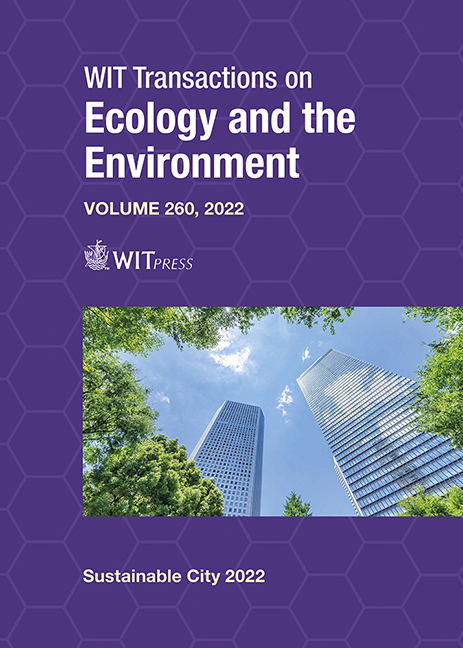RECENT REVIEW OF ENERGY CONSERVATION PLANS AND TARGETS IN THE GULF COOPERATION COUNCIL REGION: BARRIERS AND CHALLENGES
Price
Free (open access)
Transaction
Volume
260
Pages
13
Page Range
299 - 311
Published
2022
Paper DOI
10.2495/SC220251
Copyright
Author(s)
MARWA ELBANNAN, IBRAHIM MAAROUF, MAI ABDO
Abstract
In some parts of the world, such as the Gulf Cooperation Council (GCC) countries, the fast growth of societies supported by rich energy resources, mainly oil and gas, has resulted in expansive urbanization and reliance on increased levels of fossil fuel to completely support new forms of excessively enhanced lifestyles. Despite the small size of their populations, they consume almost as much oil and gas as Indonesia and Japan combined and greater than Africa. Recently, some GCC governments have publicly recognized the unsustainable nature of energy consumption patterns, or at least the tremendous waste they incur. The electricity sector, industry sector and transport sector account for an average of 70%, 50%, and 30% respectively of the total of energy consumption in the countries. This research aims to discuss common and cooperative approaches that could improve energy-efficiency and reduce energy consumption as well as CO2 emissions in all disciplines. The results confirm the importance of the following factors considering energy conservation: the importance of governance, the need for integration of renewable energy targets and the potential for greater effectiveness through cooperation at the regional level. This research concludes that although all of the GCC countries now have clean energy plans or targets and there are several impressive steps towards conservation but the effectiveness of these clean energy plans is still immature in terms of energy efficiency strategies and reduction of CO2 emissions. Therefore, it is vital to improve clean energy plans in order to promote energy conservation in the Gulf region.
Keywords
renewable energy, energy efficiency, transport sector, electricity sector, industry sector, Climate change, energy consumption, energy plans and targets, CO2 emissions, and GCC g





